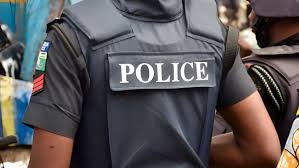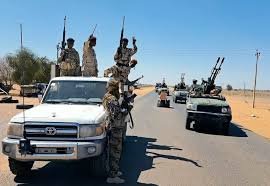As Nigerians continue to suffer the consequences of chronic insecurity across the country, urgent police reforms are needed to protect lives and property. The assertion was made by the Chairman of the Senate Committee on Army, Senator Abdulaziz Yaradua while presenting perspectives at a town hall focusing on the menace of kidnapping, organized by Africa Independent Television (AIT). The event, which was televised live on the station saw experts brainstorm on how to rescue Nigeria from the vice-like grip of criminal elements, who have been terrorising communities. Senator Yaradua said Nigeria’s police force was under-staffed, under-trained, and under-equipped to deal with the rising challenges of kidnapping, banditry, and other crimes.
He said: “We have a population of over 200 million and here we are with a police force of less than 400,000 and armed forces of just 223,000, both army, navy and air force, to prevent crimes and to also defend the territorial integrity of the nation. All the challenges we are talking about today, kidnapping, banditry, are basically police duties. This is the truth,” he said.
Yaradua, who is a retired army colonel, said that the military had been involved in internal security operations for over 13 years, which was not its primary mandate. He said that the military’s role was to defend the country from external threats, while the police was responsible for maintaining law and order and protecting citizens from criminals.
“I have never been trained to pursue armed robbers. This is the truth we should know. Our armed forces are not trained to pursue kidnappers, to pursue armed robbers. This is the training of the police. So you can see that the armed forces have been on the internal security for over 13 years today, which have undermined the capacity of the police to really police the nation,” he said.
He added that the military’s involvement in internal security had also exposed it to public criticism and scrutiny, especially when it made operational mistakes. He said that people tended to forget that the military was not supposed to be there permanently, but only as a stop-gap measure until the police could take over.
He continued: “That is why any small operational mistake they make, people make a lot of noise. But people tend to forget that this is not their role. Theirs is to maintain law and order and hand over to the police to continue their policing role,” he said.
Yaradua said that one of the things the country needed first was to understand that there was a need for police reform. He said that he agreed with the Inspector General of Police, who had acknowledged that the country needed to reform the police. He said that the police reform should include increasing the numerical strength and expertise of the police, enhancing their skills and training, providing them with adequate and modern equipment and processes, improving their conditions of service and welfare, and ensuring accountability and oversight.
He also said that the police force should have special units, such as the mobile police and the hostage rescue team, to deal with specific security challenges. He lamented that the mobile police, which used to act as a bridge between the regular police and the military, had not been training for over 12 years, since the Boko Haram insurgents took over their training camp in Gwoza in 2012.
“The police force is supposed to have special forces, because the issue of kidnapping requires what is known as hostage rescue team. I don’t know if the police have that today. And these rescue teams are security agencies that are highly trained in how to rescue kidnapped victims and even have people who want to negotiate with the kidnappers and bandits,” he said.


























